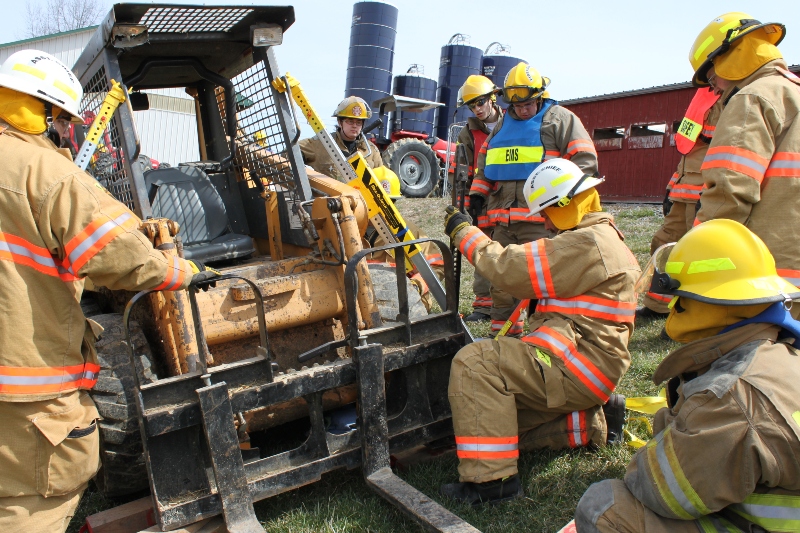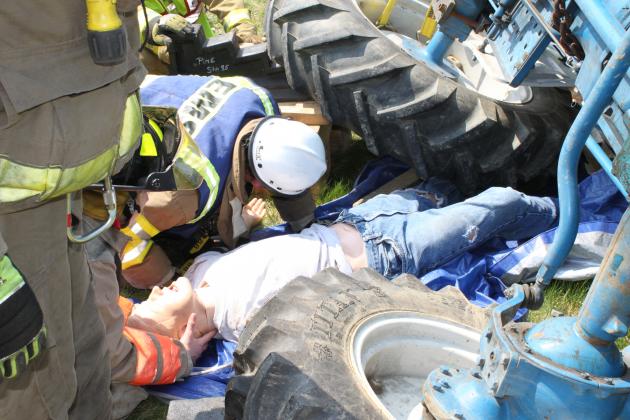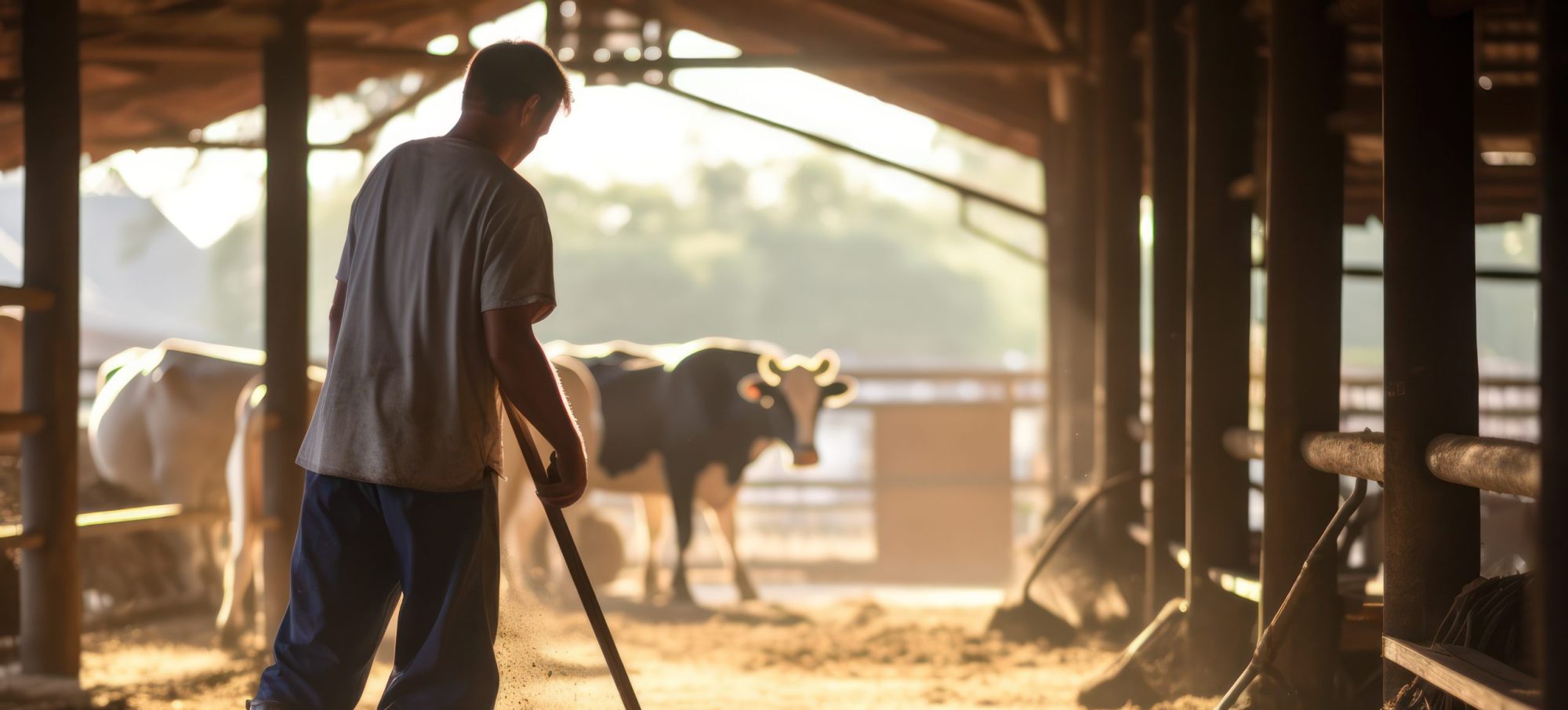
(Source: Pennsylvania State University. Agricultural Safety and Health)
Recognizing the importance of agricultural rescue training and the lack of such training for county and state emergency responders, members of the Pennsylvania State University (Penn State) Agricultural Safety and Health team developed the PA Agricultural Rescue Training program to provide necessary training to emergency service workers so that they can respond effectively to agricultural emergencies.
Website Link
Click here to be directed to the PA Agricultural Rescue Training website.
Target Audience
The training is designed for local emergency service workers, including fire, rescue, emergency medical services (EMS), county animal response team (CART), and police.
Learning Objectives and Goals
The PA Agricultural Rescue Training program at Penn State is concerned with developing and delivering training that will:
- help emergency personnel become aware of the many hazards that could happen while managing an agricultural emergency.
- help emergency personnel understand the importance of pre-planning for various farm emergencies in their communities.
- help fire, EMS, and CART units specialize in various aspects of agricultural rescue—such as incidents involving machinery, chemicals, animals, or confined spaces—and become technically competent in at least one of these areas.
- encourage fire, EMS, and CART units to work together to develop effective agricultural rescue strategies that will result in higher quality pre-hospital patient care and animal response.
- teach emergency responders to be proficient within their area of expertise (fire, rescue, EMS, CART) while managing farm emergencies.
Learning Activities

(Source: Pennsylvania State University. Agricultural Safety and Health)
PA Agricultural Rescue is divided into module units. Depending on the units, sessions are taught in one or two days of classroom instruction. Many of the training opportunities involve classroom instruction and hands-on experiential learning. The following modules are available:
- Agricultural Emergencies Awareness provides an overview of agricultural emergencies.
- Emergency Rescue in an Agricultural Environment trains responders about the uniqueness of farm rescues and provides instruction in the application of learned techniques in non-farm emergencies.
- Managing Farm Chemical Emergencies trains responders to evaluate and respond to emergencies involving agricultural chemicals.
- Farm Confined Space Emergencies Awareness trains responders to recognize and evaluate various farm confined space emergencies. Participants learn to apply OSHA Confined Space Standards to confined space situations and to respond effectively to this type of emergency.
- Large Animal Rescue Training trains CART members and emergency responders to better manage emergencies involving large (farm) animals.
- Introduction to Grain Elevator and Feed Mill Fires teaches emergency responders about the importance of preplanning for fires and emergencies involving grain elevators and feed mills.
- Animals in Barn Fires provides participants with an understanding of farm animal behavior and how animals may react in a fire situation.
Evaluation
Participants are required to complete a pre- and post-test for each module and to perform certain hands-on activities (many of these activities, depending on subject area, are team based). Each participant completes a class evaluation at the end of the training event.
Use the following format to cite this article:
PA agricultural rescue training. (2021) Ag Safety and Heatlh eXtension Community of Practice. Retrieved from http://ag-safety.extension.org/pagricultural-rescue-training.
